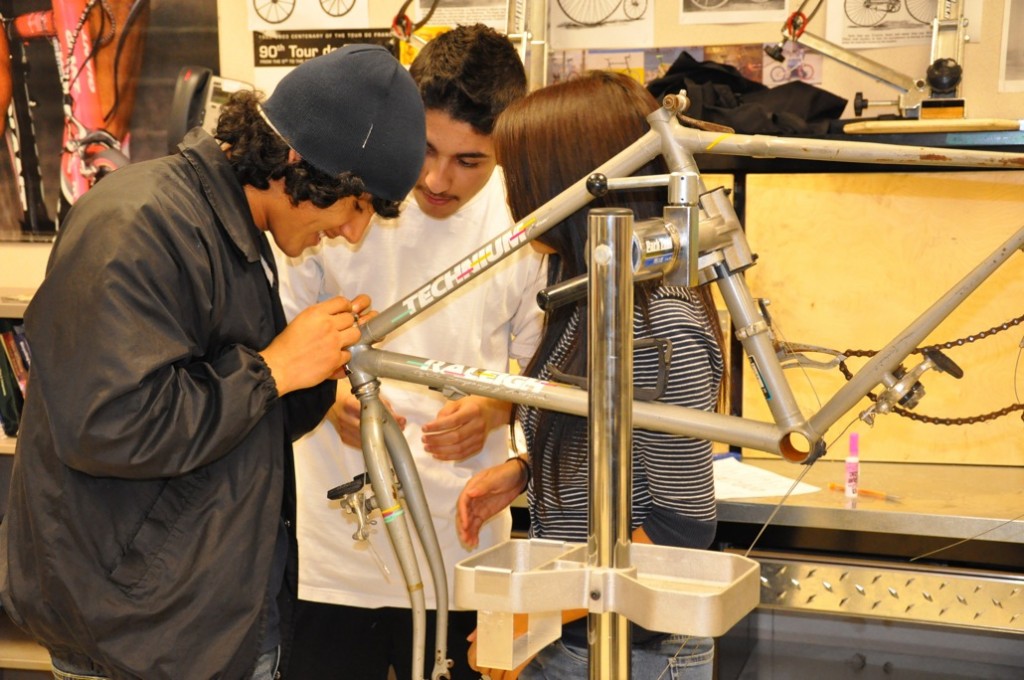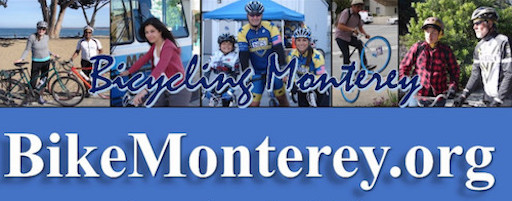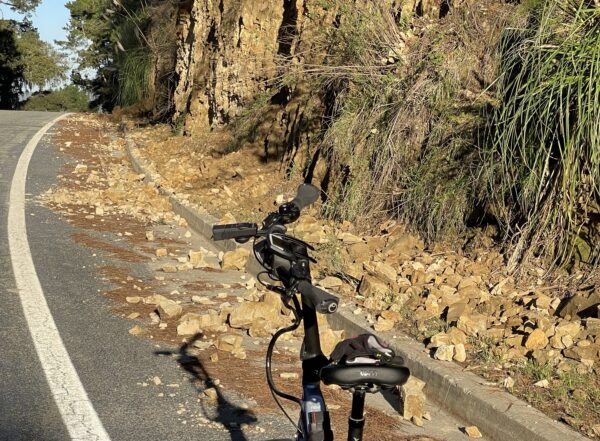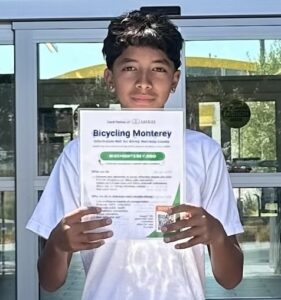Posted by Founder, Bicycling Monterey
Eco Illusion: Ecology and Economy Don’t Mix
July 1, 2011 update: Ecology-economy sustainability principles are reflected in two cool projects, for Monterey Bay and other geographic locations. Check out Zimride for transportation sharing, and Acts of Sharing for sharing all kinds of things. Read about Zimride to Big Sur on this site, and read about Acts of Sharing in Matthew and Nancy Sleeth’s Blessed Earth newsletter (the Sleeth’s work is also featured on this site).
Thanksgiving 2010 update. For examples of Monterey Bay ecology-economy partnerships, please see the following posts on this site: Reclaim for the Future in Monterey County, Project Bike Trip in Santa Cruz, and HER Helmet Thursdays, launched in Monterey County. The Sea Otter Classic is another Monterey Bay example of ecology-economy partnering; see their mission statement.
 Project Bike Trip’s bike tech education.
Project Bike Trip’s bike tech education.
* * *
Many people fear that doing right by the Earth means sacrificing our economy. Bob Willard, 34-year career veteran of IBM Canada, makes this pronouncement in his book The Sustainability Advantage: “Saving the world and making a profit is not an either/or proposition.”
Consider the wisdom expressed by Michael Laitman, founder and president of the Bnei Baruch Kabbalah Education & Research Institute: “Economy and ecology both have their own natural laws. And if we’re building an artificial economy, one that’s based on our own invented rules instead of the rules embedded in nature, then we’re leading ourselves to bankruptcy.”
The 20-yr-old 7th Generation company is enjoying ncreasing success, with its products now being carried in mainstream stores such as Target. The 7th Generation slogan stems from a concept put forth by the Iroquois nation. Today’s economic deficits make it clear that the concept, commonly summarized in the following phrase, be applied to both ecologic and economic decisions: “In our every deliberation, we must consider the impact of our decisions on the next seven generations.”
That same wisdom turns up in Christian tradition too. Northwestern College, Orange City, Iowa’s The Classic recently interviewed the former emergency room physician and hospital chief of staff, J. Matthew Sleeth. Dr. Sleeth, frustrated by tragedies including three patients in their thirties dying of breast cancer in one week, went after the cause of his patients’ diseases. He linked cancer, asthma, and other deaths to environmental toxins. Now a highly regarded eco author, Sleeth is also a Christian. His most recent book, The Gospel According to the Earth: Why the Good Book Is a Green Book, is being published by HarperOne.
The Classic asked Dr. Sleeth: “Given the current state of our economy, we’ve been warned not to severely limit our consumption or the U.S. and global economies could collapse. Thoughts?” In his reply, Sleeth stated: “We’ve been heating the house by burning the furniture. There’s no way to dig yourself out of a hole; you’ve got to go a different direction. The planet will cease to exist if every generation lives only for itself.” Sleeth’s searching for answers about the impact of environmental toxins led him to examining and reexamining the Bible, and to his position as an outspoken advocate of “Creation care.” He told The Classic, “The Bible is all about considering generation after generation after generation.”
Eco illusion? The financial success of Whole Foods is apparent. In the 9/10-16 Monterey County Weekly, writer Kera Abraham’s “Take Out Message” quoted Whole Foods CEO Walter Robb: “This idea that financial success and environmental sustainability are separate is an illusion. The only way to pierce that illusion is through courageous acts of leadership.”
Think for yourself, and decide on the leadership actions you want to take. Don’t wait for the other person. Ecology and economy are both crying for attention. Lead on.
For one example of an eco-eco leader, read my 9/17 blog post about the leadership of Gary Walter, “Reclaim for the Future: A Winning Ecology-Economy Partnership.”
This post was published on 10 September 2009. One or more changes last made to this post on 11 June 2017.





